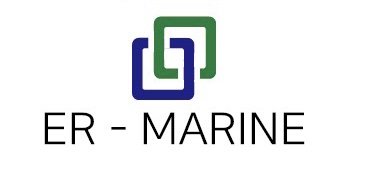Marine - Use Impact Assessment Law
Understanding the marine - use impact assessment Act and its impact on fishermen's conflicts
Introduction: The "Marine Use Impact Assessment Act—Law No. 19910," adopted on January 2, 2024, and effective January 3, 2025, represents a turning point in South Korea's regulation and assessment of maritime projects' environmental implications. This legislation is essential for guaranteeing the sustainable use and preservation of maritime resources. As pioneers in renewable energy and experts in South Korean energy policy, ER-Marine provides a comprehensive analysis of this Act and its potential to resolve conflicts, particularly those involving fishing communities.
The key principles of the law include:
Scientific basis for assessments: The emphasis on scientific methods and evidence in evaluating marine project impacts ensures that decisions are data-driven and factual.
Cumulative impact consideration: The Act requires a comprehensive view of the combined effects of past, present, and future marine projects, crucial for long-term environmental sustainability.
Precautionary conservation measures: Advocating for conservation measures that are cautious in approach, particularly in situations of uncertainty, to minimise potential harm to marine biodiversity.
Socio-economic impacts: The Act emphasises the importance of assessing projects' effects on the livelihoods and well-being of local communities, including fishermen.
Measures and their feasibility: It stresses that conservation measures should be not only environmentally sound but also technologically and economically viable.
Inclusive and transparent approach: Promoting the inclusion of stakeholder opinions, including those from fishing communities, and mandating transparency in the assessment process.
Picture courtesy Erik Roelans ©
Addressing the fishermen conflict: Is the Act sufficient?
The effectiveness of the "Marine Use Impact Assessment Act" in resolving conflicts with fishermen depends on several factors:
Inclusive Stakeholder Engagement: The Law’s success in fostering collaboration and finding mutually beneficial solutions hinges on the active involvement and genuine consideration of fishermen’s concerns.
Balanced socio-economic consideration: Accurate assessments of economic and social effects on fishermen are essential for conflict mitigation.
Effective implementation and enforcement: Proper implementation and enforcement of the Act are crucial for ensuring compliance and action based on assessment findings.
Balancing diverse interests: Resolution will require navigating and balancing the interests of fishermen, environmental conservation goals, and other stakeholders.
Adaptability and responsiveness: The ability to adapt to new information and evolving community needs will be key to addressing ongoing and future conflicts.
Conclusion:
As a leading expert on renewable energy and South Korean energy policy, ER-Marine considers the "Marine Use Impact Assessment Act—Law No. 19910" a significant step in resolving fishermen's conflicts, identified as one of the major challenges in Korea's offshore wind development efforts. Its success in resolving conflicts with the fishing community, however, will be dependent on broad stakeholder participation, successful execution, and a consistent balancing of environmental and socioeconomic interests. This law points out the value of continual communication and collaboration among all parties involved.
Comment Below: What are your thoughts on the Act's potential to balance environmental sustainability with socio-economic impacts, particularly concerning fishermen's communities?
Do you see any additional areas that need addressing?
Ref. MOF (Ministry of Oceans and Fisheries) - Marine-use impact assessment Act - Law r. 19910
Reach Out for Expertise: If you're seeking in-depth knowledge or advice on offshore wind legislation and its impacts, don't hesitate to contact us. ER-Marine dedicates itself to advancing knowledge in offshore wind energy and creating business opportunities.

